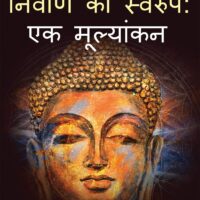“Buddha Aur Shankar” Book by Dr. Surendra.
₹650.00
“बुद्ध और शंकर” (Buddh Aur Shankar) नामक पुस्तक सुरेन्द्र अघ्यात द्वारा लिखी गई है। यह पुस्तक बौद्ध धर्म और हिंदू धर्म के दो महान आध्यात्मिक गुरुओं, बुद्ध और आदि शंकराचार्य के जीवन एवं उनके दर्शनों पर आधारित है।
इस पुस्तक में सुरेंद्र अघ्यात ने बुद्ध और शंकर के विचारों की तुलना की है और इनके बीच संबंध का वर्णन किया है। यह पुस्तक दोनों धर्मों के आध्यात्मिक अर्थ, मानवता के उद्देश्य, आत्मा की पहचान और मुक्ति के संबंध में दो आध्यात्मिक सिद्धांतों को विस्तार से वर्णित करती है।
यह पुस्तक बुद्ध और शंकर के जीवन और उनके दर्शनों के बीच एक मुख्य अंतर बताती है। शंकराचार्य वेदान्त के प्रतिपादक थे जबकि बुद्ध निरीश्वरवाद का प्रतिनिधि थे। इस पुस्तक में ये विभिन्न विचारों और दर्शनों के संघर्ष के बारे में भी वर्णित किए गए हैं।
Description
Adi Shankaracharya and Gautama Buddha are two great spiritual leaders who have made an indelible mark on Indian philosophy and spirituality. While Shankaracharya was the founder of Advaita Vedanta, Buddha was the founder of Buddhism. Although they lived in different time periods, they both emphasized the importance of self-realization and spiritual enlightenment. Here are some of the key differences between Shankaracharya and Gautama Buddha:
- Philosophy: The philosophical approach of Shankaracharya and Gautama Buddha was different. Shankaracharya was an advocate of Advaita Vedanta, which emphasizes on the oneness of the self (Atman) and the ultimate reality (Brahman). According to him, the ultimate goal of life is to achieve liberation (Moksha) from the cycle of birth and death by realizing the oneness of Atman and Brahman. On the other hand, Buddha’s philosophy was based on the Four Noble Truths, which stress on the suffering (dukkha) of life, its causes (tanha), the cessation (nirodha) of suffering, and the path (magga) to liberation from suffering. Buddha emphasized on the Middle Way, which is the path between the extremes of self-indulgence and self-mortification.
- Concept of God: Shankaracharya believed in the existence of an impersonal God, who is the ultimate reality (Brahman) and the cause of the universe. According to him, the true nature of the self (Atman) is identical to the nature of Brahman. On the other hand, Buddha did not believe in the existence of God or any creator deity. For him, the ultimate goal was to achieve enlightenment and to overcome suffering, rather than to seek the blessings of a divine being.
- Rituals and Practices: Shankaracharya’s teachings emphasized on the importance of Vedic rituals, practices, and scriptures. He believed that the performance of rituals and the study of scriptures were necessary for the attainment of knowledge and liberation. On the other hand, Buddha’s teachings emphasized on the practice of mindfulness, meditation, and ethical conduct. He believed that liberation could be achieved by following the Eightfold Path, which consists of right understanding, right intention, right speech, right action, right livelihood, right effort, right mindfulness, and right concentration.
- Social Implications: Shankaracharya’s teachings had a significant impact on Indian society, as they helped to preserve the Vedic traditions and the caste system. He believed that each individual should follow his or her dharma, or duty, according to his or her caste and station in life. On the other hand, Buddha’s teachings challenged the social hierarchy of his time and emphasized on the equality of all human beings. He believed that social distinctions such as caste, class, and gender were artificial and that liberation could be achieved by anyone, regardless of his or her social status.
In conclusion, both Shankaracharya and Gautama Buddha were great spiritual leaders who have left a lasting impact on Indian philosophy and spirituality. While Shankaracharya emphasized on the oneness of the self and the ultimate reality, Buddha stressed on the importance of overcoming suffering and achieving enlightenment through ethical conduct and meditation. Their teachings have inspired millions of people to seek spiritual enlightenment and to lead a meaningful and fulfilling life.
Only logged in customers who have purchased this product may leave a review.













Reviews
There are no reviews yet.